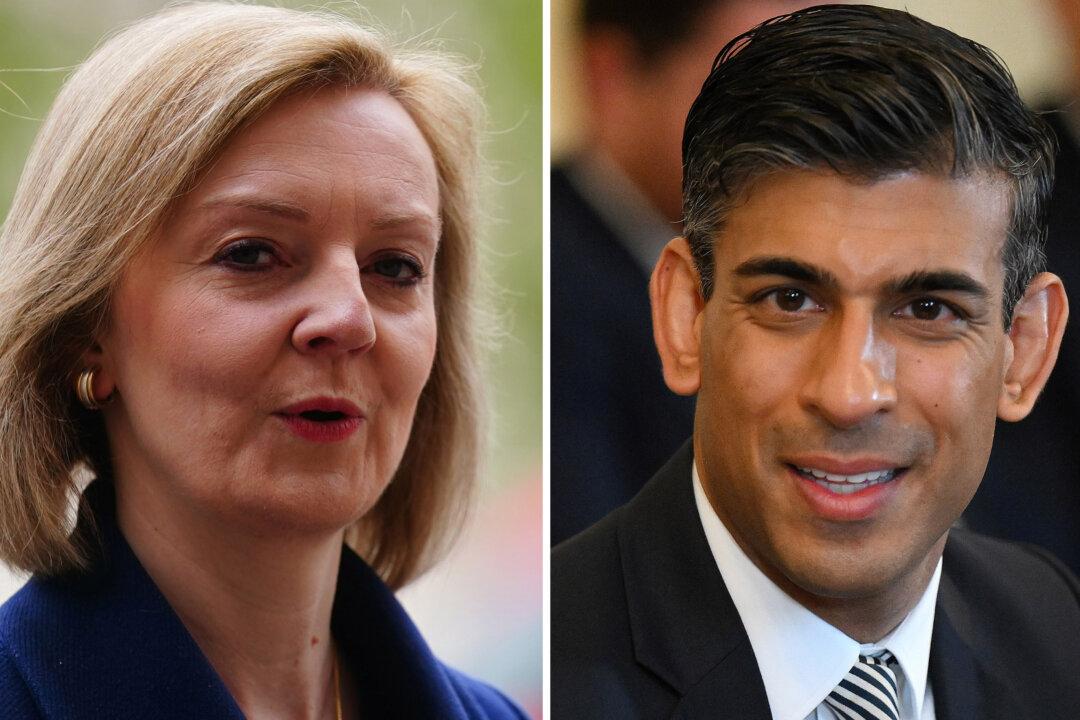Former Chancellor Rishi Sunak and Foreign Secretary Liz Truss clashed over China on Sunday amid an increasingly tense race to become the UK’s next prime minister.
The two candidates initially battled mainly over economics. The battleground has now expanded to include immigration and China policies as they vie for the support of Conservative grassroots.





